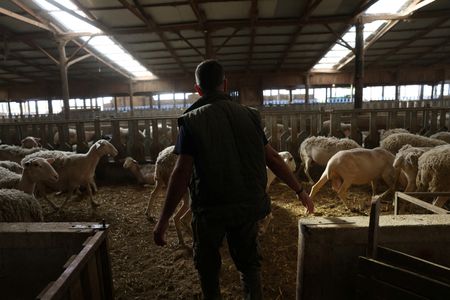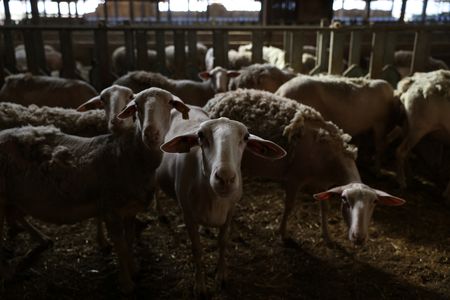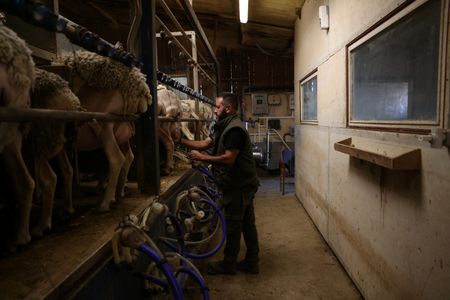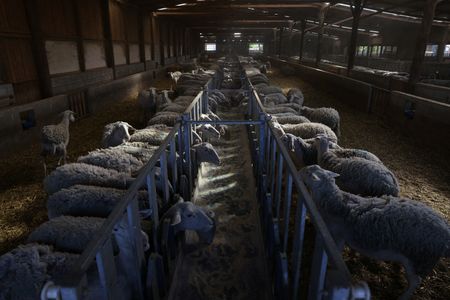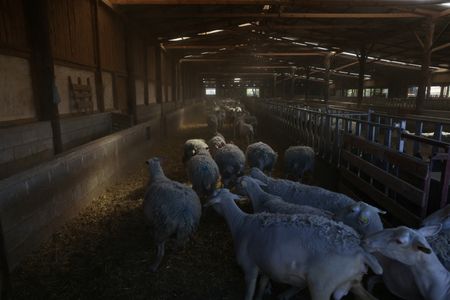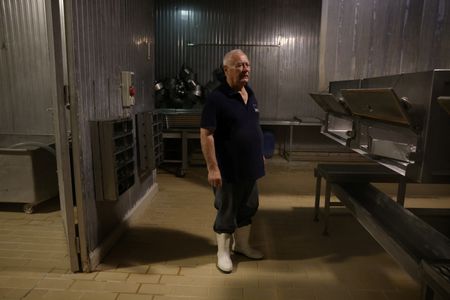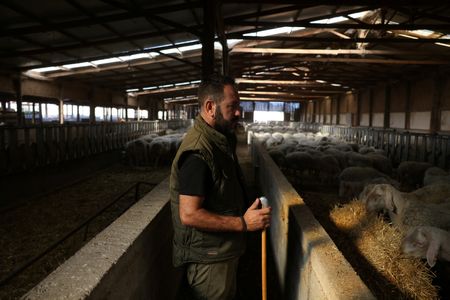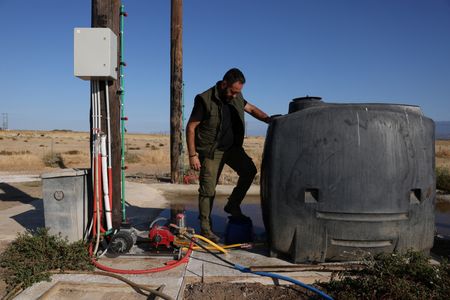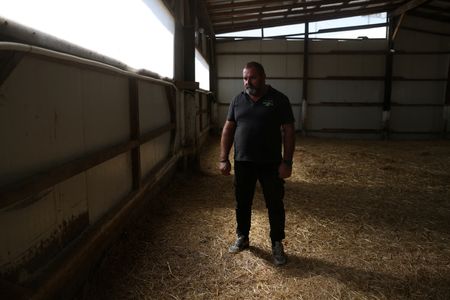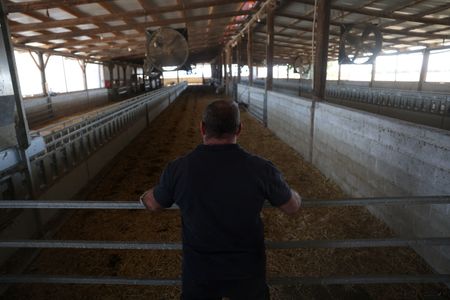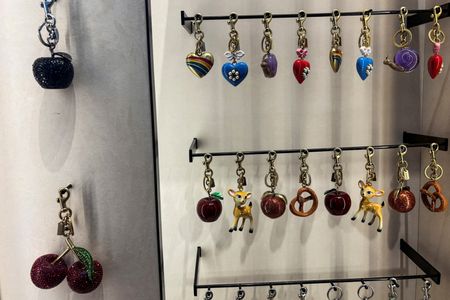By Lefteris Papadimas and Alexandros Avramidis
KILELER, THESSALY, Greece (Reuters) – Greek sheep farmers are in despair in central Greece as sheeppox destroys their flocks, while the Greek authorities are warning of a possible nationwide ban on the movement of animals.
The outbreak of the highly infectious virus in the country is threatening to drive up food prices and affect the production of feta, Greece’s famous crumbly cheese.
Giorgos Tasioulis, fighting back tears, stands in front of his empty sheep sheds.
“Our unit… is now back to zero, our family is back to zero,” the 45-year-old father of three says. Just weeks earlier, all 900 of his sheep were culled and buried only meters from his farm in Kileler municipality, central Greece.
Tasioulis had invested nearly 2 million euros ($2.35 million) since 2020 to modernise his breeding unit. Now it is silent.
Across Thessaly, Greece’s agricultural heartland, sheeppox is wiping out flocks. More than 260,000 sheep and goats — roughly 2% of the national herd — have been culled in the last 12 months, forcing 1,100 farms to shut down, based on government figures.
Kileler was hit hardest, with 40,000 animals gone and 80 breeding units closed since July.
“The situation is an absolute disaster,” Tasioulis says.
A few kilometers away, another breeder Vagelis Karajiolis is still holding on, but barely.
“Every morning I wonder what we will find at the farm, if there will be an infection,” he said, “We can’t sleep at night.”
Thessaly produces 15% of Greece’s sheep and goat meat and nearly a third of its milk and feta cheese. But the region has been battered. In 2023, storm Daniel flooded huge parts of the plain, destroying crops and killing livestock.
“When we thought we had recovered a bit, the sheeppox came and finished us off,” Karajiolis said.
Authorities have launched a 10-day emergency plan, sending veterinarians to farms and setting up disinfection zones. But this came too late for many farmers.
“Unfortunately, at that time the tough measures that should have been taken were not implemented,” says Dimitris Mpaloukas, head of the Breeders Federation of Thessaly.
Greece’s Rural Development and Food Minister Kostas Tsiaras urged farmers not to hide infections. “Responsibility is needed from all those involved as our livestock is at risk,” he said earlier on Friday speaking on public broadcaster ERT.
“Because of the pox, they killed all the sheep,” said 80-year-old cheesemaker Nikos Karakanas, looking at his empty milk tanks. “I had 10 employees, now I have none,” he said.
($1 = 0.8518 euros)
(Editing by Michele Kambas and Jane Merriman)

